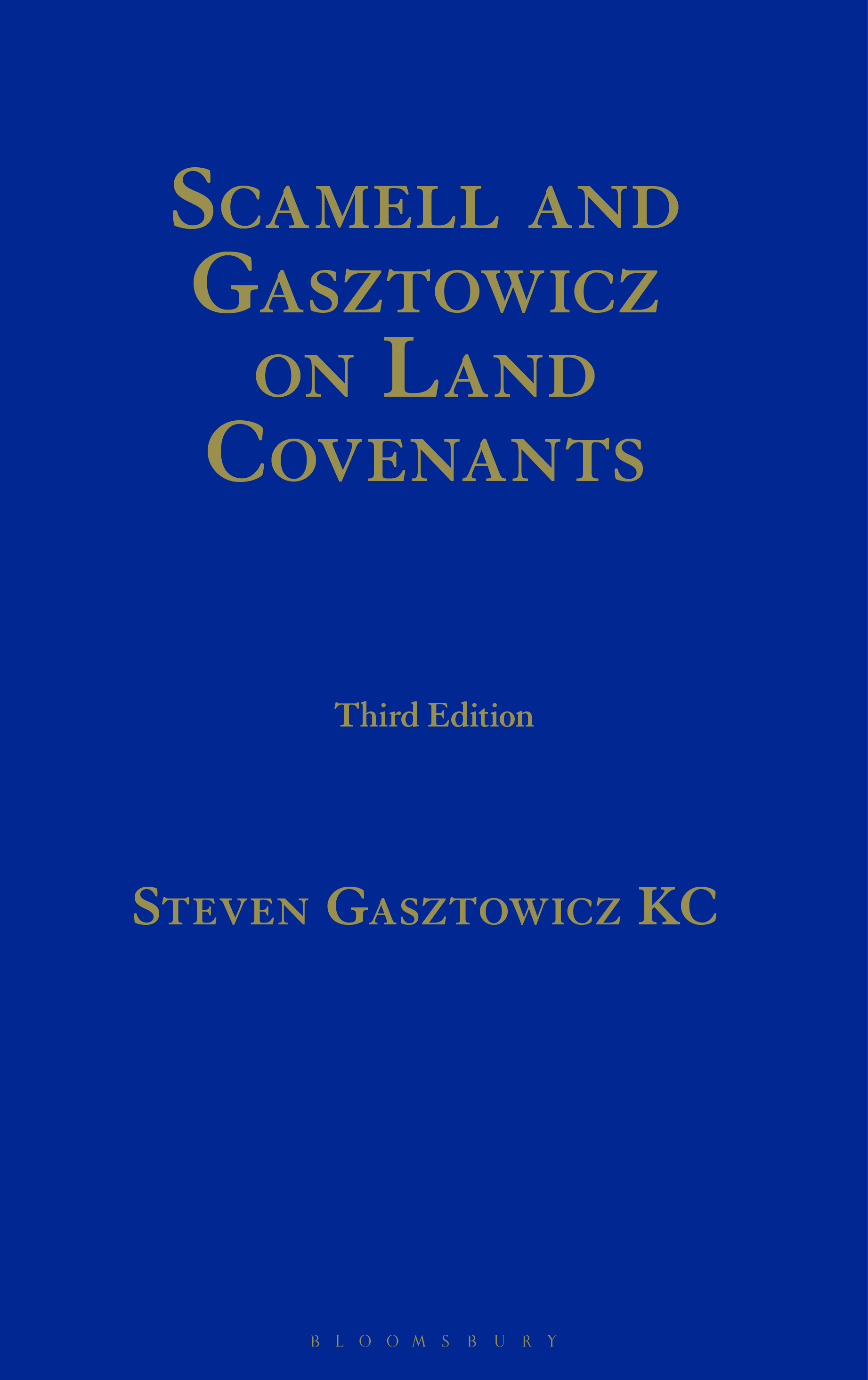Steven Gasztowicz KC is the author of Scamell and Gasztowicz on Land Covenants.
This is included in our Property and Land Law Online Service.
It was drawn to me as much as I was drawn to it! When I started at the Bar, I covered most areas of law - not just civil work, which in itself involves many different areas, but also crime and matrimonial work. I was, however, always most interested in the cases involving legal points and in particular case-based law, which, unlike statutory provision, has generally developed logically - such as the law of contract and property law, of which the law of covenants is a prime example. In the common law Chambers I was then a member of, most members preferred the more ‘sexy’ criminal work, which was very well paid at that time and usually turned on what the jury thought of the evidence rather than difficult legal points.
I therefore found myself doing more and more civil work, as others were happy to put that my way and I was happy to do it. I later moved on to an almost entirely civil set of Chambers and it eventually narrowed down - without any real conscious decision - to mainly property law, although I still undertake quite a lot of contract and public law work, which I also enjoy. I think that this paired with my wide legal background helps, as areas of law such as property law are never entirely self-contained.
The biggest change is quite hard to specify as a single item. Since the law in this area is largely case law based, one decision can impact on what was previously decided in another case, sometimes in subtle but important ways. Most people regarded the Court of Appeal result in the recent Alexander Devine case as obviously right - and that included the Supreme Court, but they still identified that the Court of Appeal had gone wrong in the way it had approached the matter. Strict intellectual rigour is required in identifying the applicable principles whatever the ‘justice ‘ of the individual case may be, because laying down skewed principles, even though the result may be fair in an individual case, may work injustice more widely. The approach set down by the Supreme Court in the Alexander Devine case is therefore an important one, which may impact on other cases in the future.
It seems likely there will be, given that this area of law is case law based. It means the law does not stand still, and continues to be refined and developed by judges.
The extent to which changes occur, and in what respects, partly depends on what cases reach the Court of Appeal and the Supreme Court, or the decision stage in the Upper Tribunal (Lands Chamber) and what points are taken in them - and sometimes also on how bold and confident the judges are in dealing with them.
It is still possible that government might one day take up at least some of the proposals in the Law Commission’s 2011 Report on Easements, Covenants and Profits à Prendre, which could lead to major statutory change in this area. However, the report is now 12 years old and there are no signs at the moment of any enthusiasm for this, let alone any prospect of parliamentary time being devoted to it, given the other pressures there currently are.
Being case law based, you have to spot changed nuances or developments of principle in the cases as they come out and work out how they interact with, and impact on, decisions previously made in other cases, sometimes of a different type. It also sometimes means identifying how the law might further be developed, or even where it has taken a wrong turn which might be corrected. Since this area of law is case law based, unlike statute nothing is cast in stone. It can be quite a challenge.
